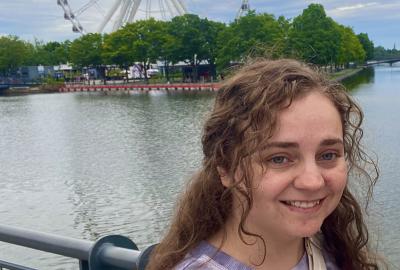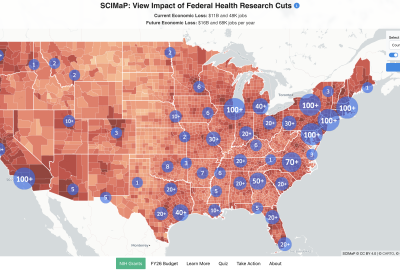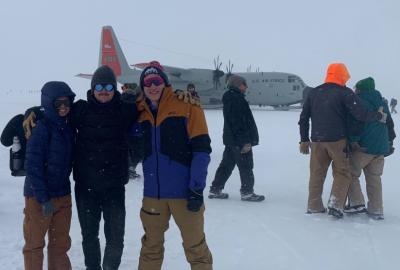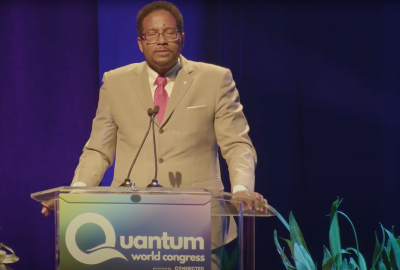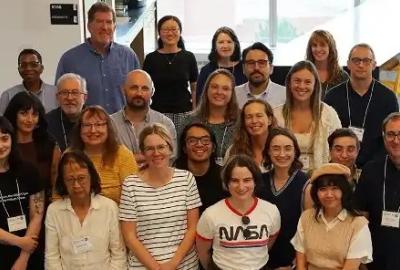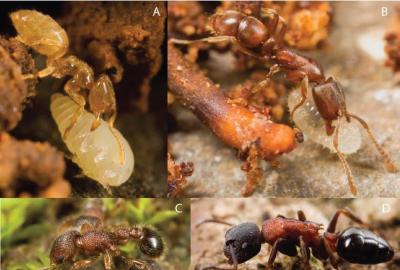Physics Ph.D. student Anna Fitzmaurice develops simulations of solar storms to understand why a rare helium isotope defies expectations during the sun’s most violent events.
Researchers at the University of Maryland and the University of Pennsylvania are jointly leading efforts to communicate the science and community impacts of ongoing cuts to federal funding for science and medical research.
UMD physics graduate student Aishwarya Vijai spent a month this summer at Summit Station, Greenland, deep inside the Arctic Circle.
The announcement cements a multi-year collaboration that has helped place UMD at the center of a global conversation on quantum science and innovation, and at the heart of the rapidly growing Greater Washington quantum ecosystem.
More than two dozen science communicators convened on campus at UMD for a workshop focused on the fundamentals of quantum science and the subtleties of explaining it.
Rangarajan is one of the students in the first cohort of the University of Maryland’s new B.S.-M.D. program.
The USM Board of Regents has recognized Dr. Anisha Campbell for her Exceptional Contribution as Associate Director for Terrapin Teachers at UMD.
UMD entomologist Evan Economo’s novel approach to studying ant populations revealed signs of decline in 79% of species found only in Fiji.
UMD continued its rise in Forbes' America's Top Colleges, reaching No. 10 among public institutions in the 2025-26 ranking.
Assistant Professor Will Fox’s lab will include a laser capable of creating and colliding plasmas, the most abundant—but least understood—state of matter.


